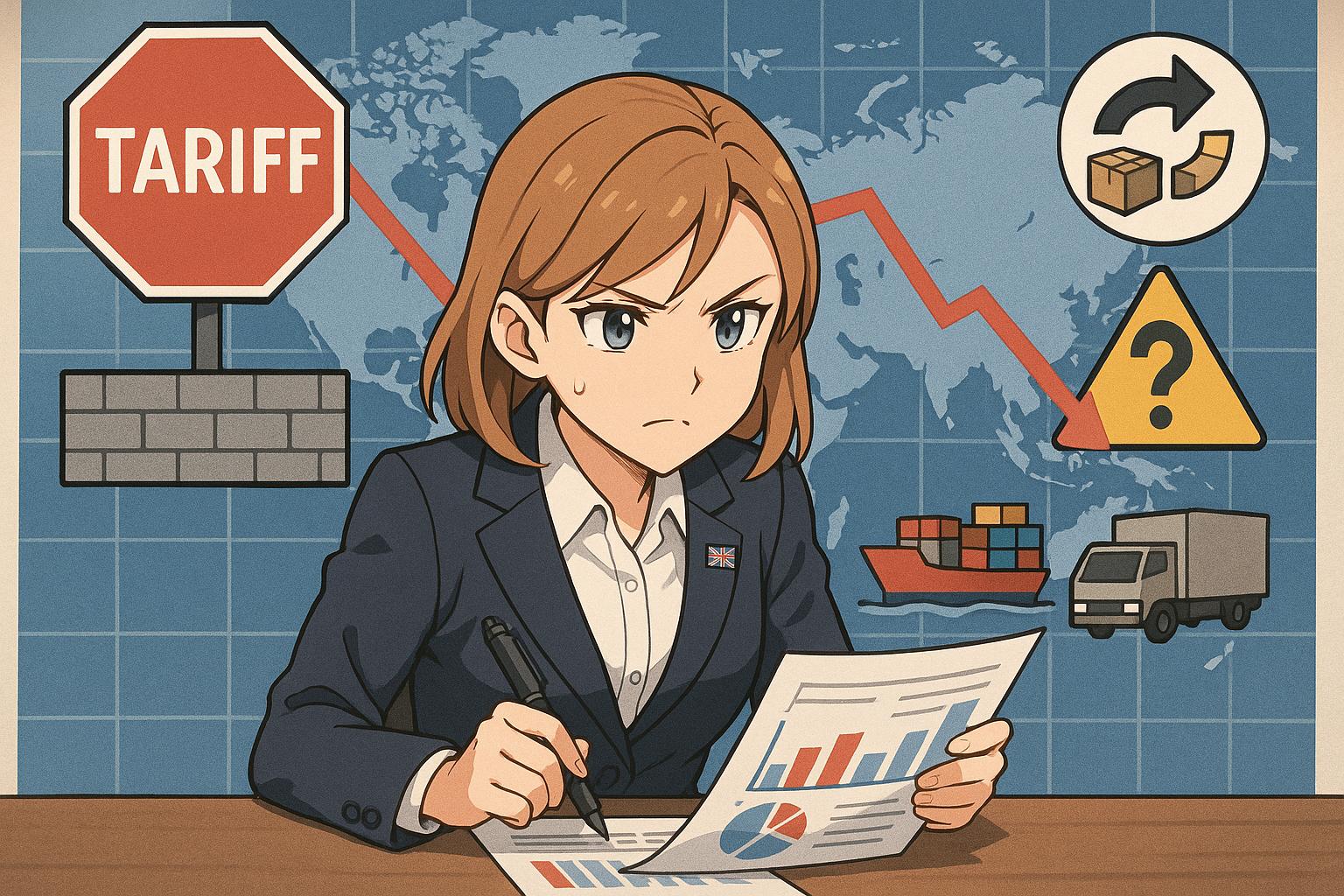More than three-quarters of UK businesses are expressing significant concern about tariffs and the broader uncertainty surrounding global trade, as highlighted by a recent Barclays business prosperity report. The survey, encompassing 1,000 firms ranging from micro to larger enterprises, found that 79% are worried about the repercussions of the global trade war, largely driven by escalating tariff measures initiated by the United States. Nearly half of these businesses—48%—have already begun reshaping their US operations or adjusting supply chains to mitigate potential disruptions.
The report paints a troubling picture for investment in the US market, showing that 14% of firms have reduced their investments, whilst 15% have either paused or cut expenditures altogether. Despite the gloomy outlook towards tariffs, the same study revealed a complex dynamic in international trade. While 44% of firms reported an increase in international trade over the past year, a vast majority—59%—of that trade growth has been with Europe and Central Asia. In contrast, only 18% of businesses reported growing trade with the US, illustrating a notable shift in focus.
This sentiment resonates with findings from a recent Santander survey, which underscored that 63% of UK firms perceive rising tariffs as a substantial threat to their growth. Among larger companies, this concern intensifies, with 80% identifying tariffs as a significant risk, indicating a heightened dilemma particularly for those aiming to expand their operations overseas. Both surveys suggest a proactive approach among businesses; a parallel 48% are adjusting their supply chains to navigate tariff-related challenges.
In a somewhat optimistic twist, larger companies appear relatively bullish on their long-term prospects despite immediate tariff implications. Matt Hammerstein, chief executive of Barclays UK corporate banking, remarked that a robust international trade strategy and re-evaluated supply chains could transform geopolitical uncertainties into competitive advantages. He noted that many larger firms are already adapting in order to cultivate resilience in the face of these global pressures.
Nonetheless, the pressure is palpable, with 37% of surveyed businesses bracing for adverse impacts on their overall prospects. Increased productivity has become a crucial focus, with 46% of firms highlighting it as more critical than ever, driven by the need to offset rising cost pressures exacerbated by tariffs. Additionally, workforce challenges are compounding these issues; 72% of businesses reported difficulties in hiring skilled labour as a barrier to growth.
Hannah Bernard, head of Barclays business banking, emphasised that productivity improvements, particularly through staff training and digital transformation efforts, are vital for overcoming these labour challenges and navigating the complexities that arise from tariff pressures. The drive for productivity gains serves as a proactive strategy to alleviate some of the financial strains confronting numerous firms.
As businesses brace for further waves of uncertainty in tariffs and trade policies, the interplay between immediate operational adjustments and long-term strategic planning continues to shape the landscape for UK firms. The evolving economic climate necessitates adaptability, proactive strategies, and a keen focus on international relationships to remain competitive in an increasingly unpredictable global environment.
📌 Reference Map:
- Paragraph 1 – [1], [2]
- Paragraph 2 – [1], [2]
- Paragraph 3 – [1], [7]
- Paragraph 4 – [1], [5]
- Paragraph 5 – [6], [3]
- Paragraph 6 – [1], [2]
- Paragraph 7 – [1], [6]
Source: Noah Wire Services
